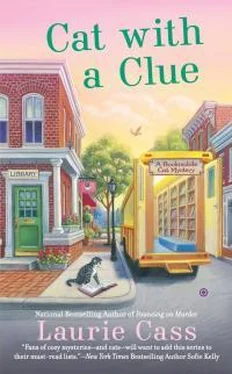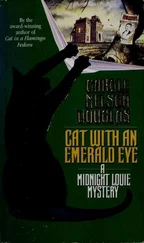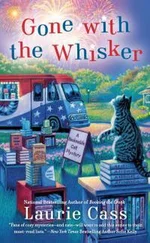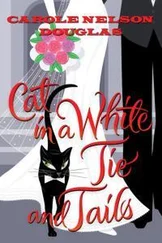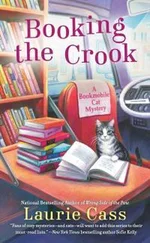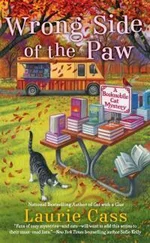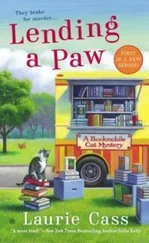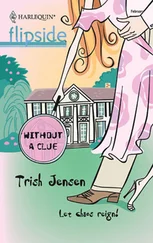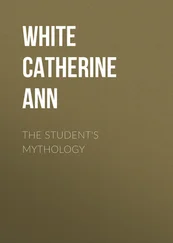“Sorry, but I’m not going to,” I said. “If I’m director, I can’t drive the bookmobile, and that’s too important to me.”
There was a long silence.
Holly heaved a huge sigh. “I understand. I don’t like it, but I understand.”
“I get it,” Josh said, nodding slowly. “But I’m with Holly. I don’t like it.”
I looked at Donna, who grimaced. “Yeah, yeah,” she said. “Same as those two.”
I smiled, glad to have the bad news delivered and done with. “Don’t look so gloomy. Things will work out.”
“Or not,” Donna muttered, but I chose not to hear her comment, and went back to my office.
* * *
At lunchtime, I pushed back from my computer. I’d been staring at the screen for two hours straight and needed a break. Outside, I looked around, smiling at the high white clouds, blue sky, and sidewalks that were beginning to crowd up with the summer folks. It wouldn’t get avoid-downtown-at-all-costs busy until the Fourth of July, but there was enough foot traffic to make it impossible to walk in a straight line.
I stopped outside Pam’s store and peered in. Her clerk was showing off a collection of antique aprons, and Pam herself was at the register, totting up purchases with one hand faster than I could have with two.
When she finished, I popped my head in the front door and waved at her. When she waved back, I asked. “How about lunch?”
She looked around her store. At least half a dozen customers were milling about, and I moved aside to let two more inside. “How about tomorrow?” she asked.
I shook my head. “Bookmobile day.”
One of the women who’d just walked in whirled around. “You have a bookmobile here? How wonderful!” She elbowed her female companion. “Did you hear that, Susie? They have a bookmobile.”
“That settles it,” Susie said. “I’m moving up here next week.”
I laughed. “Hope you like snow.” I looked back to Pam. “Lunch on Friday? No? Saturday is probably too busy for you. How about . . .” I had plans for Sunday, didn’t I? And it seemed as if I had something on Monday. Tuesday was another bookmobile day, which left—
“How about September?” she asked, laughing.
I smiled at her ruefully. “Sounds about right.”
“We’ll figure out a day soon,” she said. “And I’m paying. I owe you big-time for Sunday—don’t think I’m going to let you forget it. All that work, not to mention the hospital trip.”
Susie and her friend, who were still standing close by, looked at the two of us curiously. “Hospital?” Susie asked. She gestured at Pam’s sling. “That’s recent?”
“Fresh as a daisy,” Pam said. “And it’s all thanks to Minnie here that the store is even open today.”
I could see where this was going, and I didn’t want any part of it. “Nice to meet you,” I said to the two women, “but I hear the library calling.” I smiled and hurried off before I was forced to listen to any of Pam’s tall tales about my good deeds.
Outside, I walked past the insurance agency and the shoe store, pausing only to use a stranger’s cell phone to take a picture of said stranger’s family, all of whom were posing under the new clock. As I handed the phone back and listened to their thanks, I eyed the large store across the street. Speaking of deeds, good and bad, there was Benton’s, the store the DeKeyser family owned. And, I’d recently learned through a text from Rafe, still owned through a granddaughter whose name I’d come up with in a minute.
As I crossed the street, I remembered her name. “Rianne,” I said out loud, and earned a sideways glance from a man wearing shorts, a polo shirt, and deck shoes. “Howe,” I added, nodding.
“How do you do?” he asked pleasantly enough, but he kept to the far side of the sidewalk and didn’t slow down.
Since I’d clearly spent enough time that day making tourists uncomfortable, I opened the store’s front door. Once inside, I stopped and did what I always did when walking into Benton’s: just stood there and breathed deep with my eyes closed.
Instantly I was transported back in time, back to the days of stores with wood floors and tin ceilings, when penny candy was sold from glass jars and herbs could be purchased in bunches that hung from a rack.
I opened my eyes and there it all was, from tin ceiling to wood floor, to candy in a jar and hanging herbs. The penny candy cost more than a penny and the herbs were for decoration only, but still.
A few customers milled about in the housewares section, exclaiming over the glass butter dishes and wire fly swatters, just like grandma’s. A young man about twenty years old was standing behind the wooden counter, bagging up a small collection of toys and candy for a girl half his age. “There you go, miss,” he said, pushing the paper bag toward her outstretched hands. “Would you like help carrying that to your car?”
She giggled. “No, thank you. Bye, Brian. See you next week!” She ran past me, flew out the door, tossed her purchases into the front basket of her bicycle, and was pedaling off in seconds.
“Next week?” I asked, coming up to the counter. “She’s a regular?”
“She’s in here once a week through mid-August,” he said, nodding. “Her family spends the summer up here, and this is allowance day.”
“Which is now all gone?”
He glanced at the cash register. “She has thirty-two cents left.”
“Maybe Cookie Tom will give her a cookie for that much,” I suggested.
“When I did the same thing when I was her age, he’d give me two.” We laughed, and he asked, “What can I do for you?”
“I’m looking for Rianne Howe. Does she have a minute?” I gave him my name.
“Hang on.” He picked up the phone, asked my name, and punched a few sleek buttons. The anachronism of a twenty-first-century telephone in a late-1800s general store bothered me a little, so I averted my eyes and studied the massive brass cash register instead.
“She said come on back.” Brian clunked down the phone and nodded to the rear of the store. “See that curtain? Through there. There’s a door on the right—that’s her office.”
I thanked him and made my way past the shelves of office supplies, then past the T-shirts, work boots, and overalls. I glanced at the far side of the store toward the colorful selection of fabric and kitchen supplies and strong-mindedly marched past the books. I pushed my way through the navy blue burlap curtain panels Brian had indicated and knocked on Rianne’s office door.
“Come on in,” she called.
“Hi,” I said, and stopped short. I’d assumed her office to be one of two things: full of the castoffs from a store that had been in existence for more than a hundred years, or city sleek and modernistic. “Wow. This is . . .”
Rianne grinned. She was probably in her early forties, and her smile crinkled the corners of her eyes attractively. “What do you think?” she asked, pushing her reddish brown hair back behind her ears. “I love hearing people’s first impressions.”
“It’s amazing,” I said, soaking it all in. “And I mean that in the best possible way.”
There were wide windows and wood-paneled walls and a high ceiling made of wood. There were built-in cabinets that looked like they’d been designed by a master, and brass light fixtures that harked back to the days of kerosene lamps. There was a wood floor and scattered area rugs and framed diagrams of Janay Lake and Lake Michigan.
But, above all, there was a massive wood ship’s wheel attached to the front of Rianne’s desk. My hands itched to take hold of one of the spoke handles and give it a spin, but since I was working on being a fully functioning adult, I kept my hands at my sides.
Читать дальше
